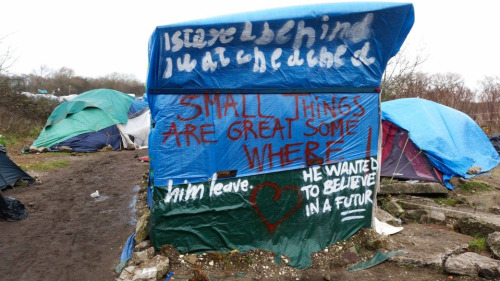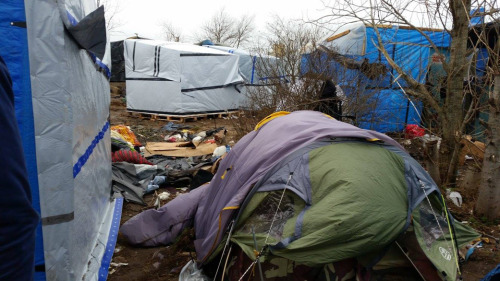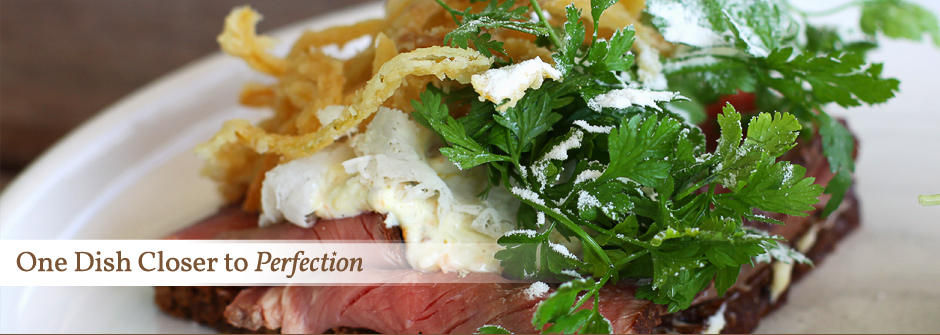Into The Jungle
 Wednesday, February 3, 2016 at 10:04PM
Wednesday, February 3, 2016 at 10:04PM 
Hope is the thing with feathers
That perches in the soul,
And sings the tune without the words,
And never stops at all,And sweetest in the gale is heard;
And sore must be the storm
That could abash the little bird
That kept so many warm.I’ve heard it in the chillest land,
And on the strangest sea;
Yet, never, in extremity,
It asked a crumb of me.

Last weekend I travelled to Calais with a group of 6 friends to volunteer and help the refugees in ‘The Jungle’. Hope was one of a number of emotions that I did not expect to feel or encounter in my time there.
The Jungle is a makeshift refugee camp in the Port of Calais. It has been there since the early 2000s, but until recently it only had around 600-800 inhabitants. In 2014 this number exceeded 1000 and by the summer of 2015 there were approximately 3000 refugees, asylum seekers and economic migrants living there. Now, 6 months later, the numbers have doubled to around 6000 and growing.

Because the French and British governments are turning a blind eye to the problem in Calais and do not officially recognise The Jungle as a refugee camp, none of the international aid organisations that you would expect to find there are present. No Red Cross, no Amnesty International, no UNHCR.
A number of volunteer networks have sprung up there as a result; groups of people who want to make a difference. They are doing amazing work, but without proper funding and resources their capabilities are limited. Systems have developed on an ad hoc basis as people come and go. They lack structure, because the few long-term volunteers are overworked and dealing with a constant influx of donations and new volunteers.

We took a van full of donations of food, clothes, sleeping bags and tents to a warehouse shared by two of these volunteer networks, L’Auberge des Migrants and Help Refugees. We then got stuck in helping out in the warehouse – sorting food donations and assisting in the kitchen.
The kitchen there provides one hot meal per day for around 2000 people. This is a fantastic effort given that they are relying entirely on food and cash donations and volunteer labour. They are lucky enough to have trained chefs willing to give up their time and the quality of the food they produce is phenomenal; mostly vegetarian, hearty, tasty and nutritious.

We visited The Jungle a few times. I went to distribute food parcels and the boys helped to build shelters, fix roofs and do odd jobs around the camp. We were all struck by the appalling living conditions there – mud everywhere, limited electricity and running water, toilets overflowing, tents blowing open in gale-force winds, families of 6 in wooden huts the size of a garden shed (and they are the lucky ones).
My friend Dave found himself in the unfortunate position of being desperate for the loo. He couldn’t wait any longer and used one on site. He was quite literally green when he came out and refused to hug his girlfriend, Tam, for the rest of the day.

I had prepared myself to be confronted, to come back feeling weary and depressed. I was confronted and I did feel weary, but I didn’t feel depressed. I could not help but be touched by the kindness and compassion, not only shown by my fellow volunteers, but by the refugees living in The Jungle. It could be very easy for them to feel spite or animosity towards me, this fortunate Westerner in her warm clean clothes and waterproof boots, but I was greeted with nothing but smiles, warmth and gratitude by everyone I met there.
When I was leaving The Jungle, one of the community leader’s Samir asked me how I had found the experience. I told him what I have just told you. He held my hand, looked me squarely in my eye and said ‘thank you’. The intensity of his gaze and the sincerity of those two small words were overwhelming. I had to look away; I had tears in my eyes. Why is he thanking me? I have done so little. He has done and dealt with so much.
There is still so much more to do. From London it takes just one and a half hours to travel by train to Calais, 3 hours by car or 4 hours by bus. The people there urgently need helping hands, even if it is just for a few days. You can find more information about volunteering here. If you want to take donations, here is a list of the things that they most urgently need. If you want to donate money, you can do so here. Every little bit counts.

‘Never give up’. These three short but powerful words were scrawled on numerous surfaces throughout the camp on makeshift homes and toilet doors. A constant reminder of the courage and humanity of these people who did not choose this path, but who have been unlucky enough to be born into unfortunate circumstances. You can give them reason to hope.

Wide angle photos courtesy of Tamlyn Davies.
 Vix |
Vix |  5 Comments |
5 Comments | 
Reader Comments (5)
Very moving, Vix; do please keep me posted.
Vix thank you for sharing this with us. I think most of us are paralysed by the enormity of the refugee issue worldwide, but you remind us that every individual can make a difference , however small. Well done Hija mía xx
Thanks Ma and Trev for your comments. Much appreciated. xx
Hello Vicky - Thank you for this moving post. Makes me ache. But most of all, thank you for Emily Dickinson!
Hi Sally, thanks so much for your comment. I'm glad you liked the poem. It really moved me when I read it. She expressed what I was feeling much better than I ever could have. Vix